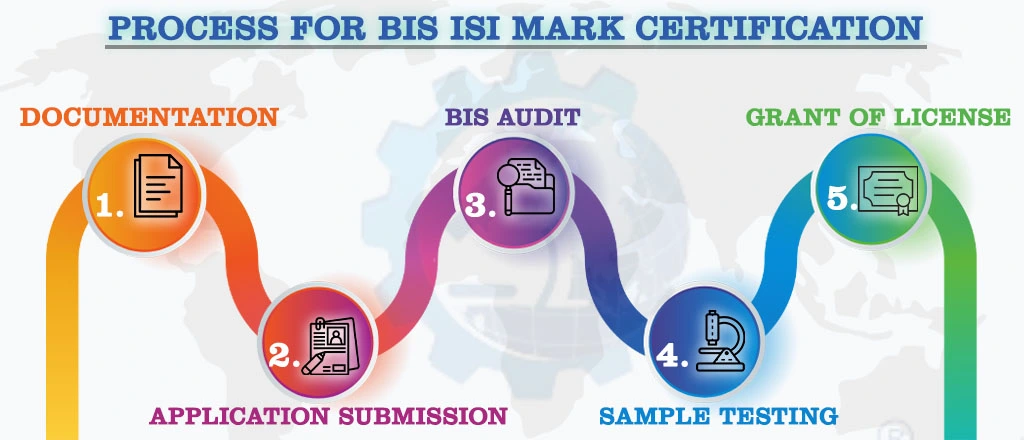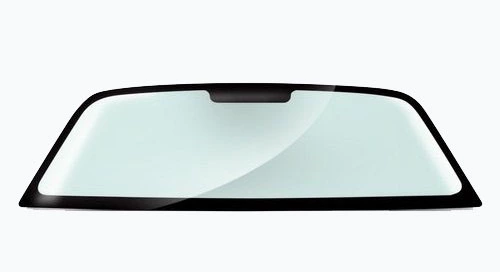BIS CERTIFICATION FOR SAFETY GLASS FOR ROAD TRANSPORT
IS 2553 (PART 2):2019
In this competitive scenario, it isn't easy to survive in the market without a standard quality and certified product. BIS license may also be required to sell products in the Indian market.
To get BIS certification and produce a
standard quality product, the manufacturer must ensure that their
product must follow the specified Indian standard.
Let's take a closer look at IS 2553 (Part 2):2018 for Safety Glass.
Safety glass for road transport is covered under IS 2553(Part 2):2019. This standard specifies the requirements and sampling and testing methods for safety glass intended for use in automobile windscreens, backlight, and side window glasses.
Safety glass shall be made of 'AA' and 'A' quality flat transparent sheet glass that meets the requirements of IS 2835: 1987. Float glass can also be used to make safety glass. The thickness of the safety glass must be in accordance with the standard and measured using the method specified in the standard. Tolerances for safety glass height, width, and corner sections must be in accordance with the standard.
Safety glazing intended for installation in motor vehicles in accordance with IS 2553 (Part 2) is classified as follows:
- Windscreens
- Laminated Glass (II, II/P)
- Glass Plastics
- Panes
- Uniformly Toughened Glass (with and without marking P)
- Laminated Glass
- Double Glazed Unit (Symmetrical, Asymmetrical)
- Glass Plastics
- Rigid Plastics
- Flexible Plastics
Each classification and sub-classification must be tested separately to cover that particular type of safety glass. Various tests specified in the standard must be carried out according to the procedures specified in the specification in a properly equipped and staffed laboratory.
TESTS
The following test shall be carried out for safety glass for road transport.
- Light Transmittance Test
- Test of Resistance to abrasion
- Resistance to Temperature Changes
- Resistance to fire
- Resistance to chemicals
- Resistance to Radiation
- Resistance to humidity
- Optical Distortion Test
- Head-form test
- Fragmentation test
- Weathering
- Cross-cut
Packing and marking shall be done as per the requirements of IS 2553 (Part 2): 2019. The packet must be marked with the information specified in the standard. The standard mark (ISI Mark) shall be marked on each piece of safety glass, provided that the safety glass thus marked meets all the specification requirements. The Manufacturer must obtain a BIS license from the Bureau of Indian Standards to use a standard mark (ISI Mark).
The BIS grants a license based on a successful assessment of manufacturing infrastructure, quality control and testing capabilities, and production process during a visit to its manufacturing premises.

NOTE:
For Detailed Information about the Procedure for BIS ISI Certification
Visit :
ISI Mark Certification for Domestic ManufacturersISI Mark Certification for Foreign Manufacturers
Conclusion:
If a product falls under the scope of the BIS Conformity Assessment Scheme, All the manufacturers, importers, and foreign entities must obtain BIS ISI Certification. The Bureau may cancel the License if the product fails to meet certification requirements.
Aleph INDIA has been serving the industry as a single-window operator for all product regulatory compliance. We can assist importers or manufacturers in meeting all criteria for importing or selling a product in the Indian market.
International Audits & Participation
Testimonials
BIS REGISTRATION FOR ELECTRONIC & IT PRODUCT
In the era of globalization, world trade is growing rapidly and henceforth, Manufacturing and Import/Export businesses are also growing drastically...View More
BIS CERTIFICATE FOR FOREIGN MANUFACTURER
The Economy of India-the fastest developing economy on the globe with the capabilities that help it matches up with the biggest international...View More
PRODUCT CERTIFICATION SCHEME (ISI MARK) FOR DOMESTIC MANUFACTURERS
Anything a person buys from food to cars, clothes to electronics, branded to unnamed products there is always a question that wanders in one’s...View More
WIRELESS PLANNING AND COORDINATION (WPC)
WPC: Wireless means communication done from one point to another point without the wires and cables. Electromagnetic waves carry the ...View More
BUREAU OF ENERGY EFFICIENCY (BEE) CERTIFICATE
BEE CERTIFICATE: Energy is the future, and its conservation is the way of the bright future. Everyone claims the environment is important...View More
E-WASTE MANAGEMENT
E-waste is one of the world's fastest-growing trash streams. We currently manufacture almost 50 million tones of it each year...View More
Request a call back.
Would you like to speak to one of our Senior Technical advisers over the phone? Just submit your details and we’ll be in touch shortly. You can also email us if you would prefer.
BIS REGISTRATION FOR ELECTRONIC & IT PRODUCT
In the era of globalization, world trade is growing rapidly and henceforth, Manufacturing and Import/Export businesses are also growing drastically...View More
BIS CERTIFICATE FOR FOREIGN MANUFACTURER
The Economy of India-the fastest developing economy on the globe with the capabilities that help it matches up with the biggest international...View More
PRODUCT CERTIFICATION SCHEME (ISI MARK) FOR DOMESTIC MANUFACTURERS
Anything a person buys from food to cars, clothes to electronics, branded to unnamed products there is always a question that wanders in one’s...View More
WIRELESS PLANNING AND COORDINATION (WPC)
WPC: Wireless means communication done from one point to another point without the wires and cables. Electromagnetic waves carry the ...View More
BUREAU OF ENERGY EFFICIENCY (BEE) CERTIFICATE
BEE CERTIFICATE: Energy is the future, and its conservation is the way of the bright future. Everyone claims the environment is important...View More
E-WASTE MANAGEMENT
E-waste is one of the world's fastest-growing trash streams. We currently manufacture almost 50 million tones of it each year...View More
View All Services
Request a call back.
Would you like to speak to one of our Senior Technical advisers over the phone? Just submit your details and we’ll be in touch shortly. You can also email us if you would prefer.






























